Walking through an olive grove reveals the art and science behind producing extra virgin olive oil. Visitors witness the careful selection of ripe olives, the intricate washing and crushing process, and the skilled extraction techniques that yield this liquid gold. Each step plays a vital role in preserving flavor and quality. But what truly sets extra virgin olive oil apart? Exploring the nuances of this beloved ingredient uncovers a world rich in tradition and health benefits.
- Key Points
- The Olive Tree: A Brief Overview
- Harvesting Techniques for Olives
- The Process of Olive Oil Extraction
- Understanding Extra Virgin Olive Oil
- The Role of Terroir in Olive Oil Quality
- Health Benefits of Extra Virgin Olive Oil
- Tasting and Pairing Olive Oil
- Visiting an Olive Grove: What to Expect
- Frequently Asked Questions
- What Is the Best Time of Year to Visit an Olive Grove?
- Are There Any Age Restrictions for Participating in Olive Oil Tours?
- Can I Purchase Olive Oil Directly From the Grove?
- How Long Does the Olive Oil Tasting Session Last?
- Are There Any Restroom Facilities Available During the Tour?
- The Sum Up
- More Food & Drink Experiences in Pienza
- More Tours in Pienza
- More Tour Reviews in Pienza
- Still browsing? Here are more Pienza experiences we've covered recently
Key Points
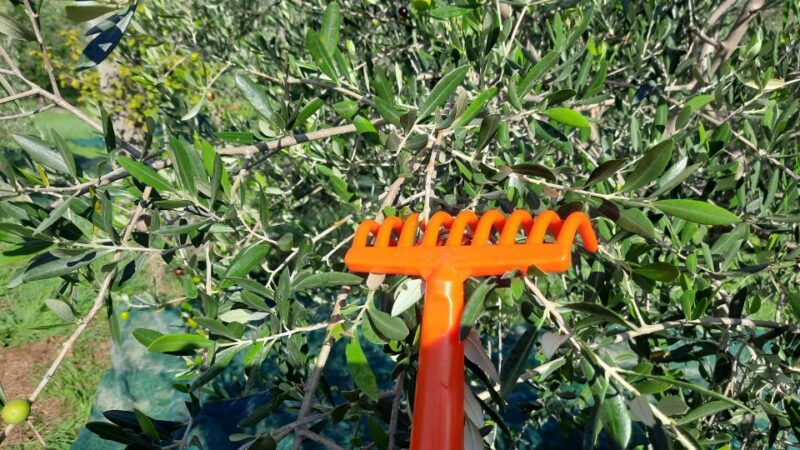
- Olives are carefully hand-picked or mechanically harvested to ensure minimal bruising and optimal ripeness for oil extraction.
- After harvesting, olives are washed and crushed into a paste to release the oil contained within the fruit.
- The paste is then mixed and spun in a centrifuge to separate the oil from water and solids, ensuring purity.
- Cold-pressed extraction methods are used to preserve the rich flavor and health benefits of the oil.
- Finally, the oil is stored in cool, dark containers to maintain quality and enhance its natural flavors.
The Olive Tree: A Brief Overview
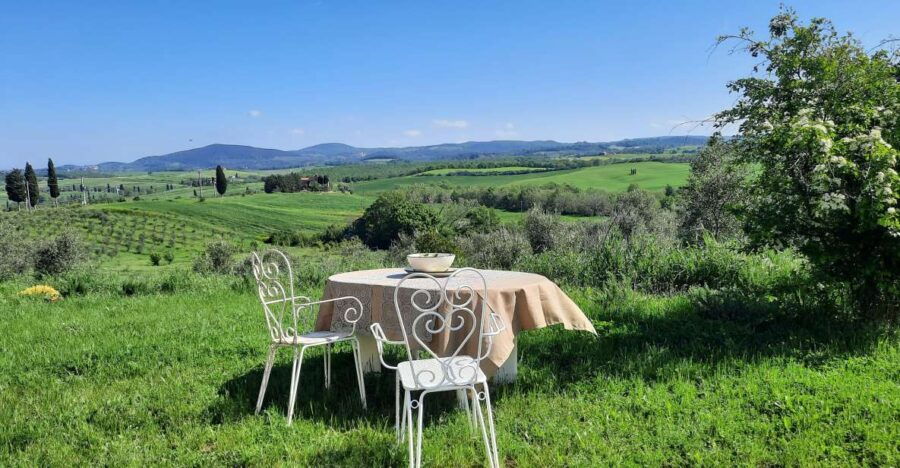
The olive tree, with its gnarled trunk and silvery leaves, holds a special place in Mediterranean culture and history. Known for its resilience, this tree thrives in rocky soils and harsh climates, symbolizing peace and prosperity.
Cultivated for thousands of years, it’s not just a source of delicious olives but also a vital part of local traditions and economies. The tree’s longevity often leads to its association with family heritage and community values.
From ancient rituals to modern kitchens, the olive tree continues to connect people, offering both nourishment and a rich tapestry of cultural significance across the Mediterranean region.
Into exploring Pienza on foot? Check out these other walking experiences we've looked at
Harvesting Techniques for Olives
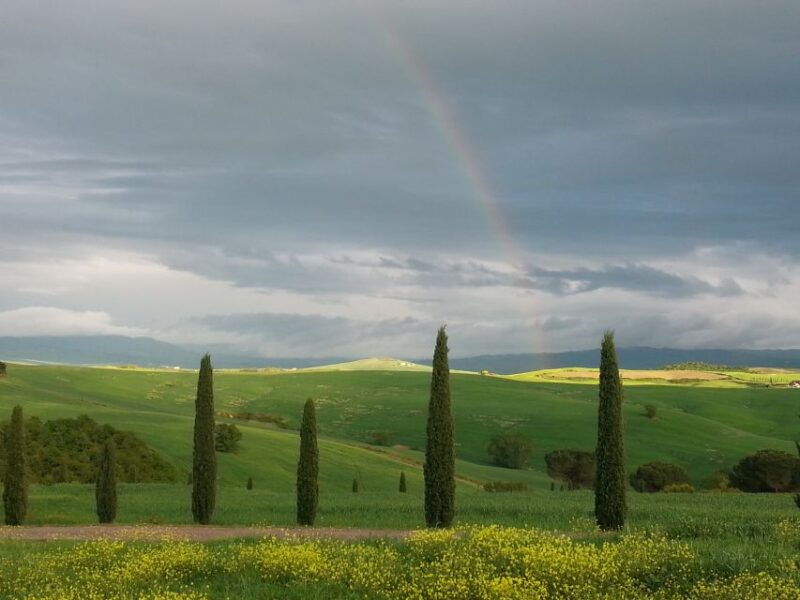
While some might think harvesting olives is a simple task, it actually involves a variety of techniques that ensure the fruit is collected at its peak quality.
Farmers often use hand-picking methods, carefully selecting ripe olives to avoid bruising. In contrast, mechanical harvesters shake the branches, allowing the olives to fall onto nets below. Each technique has its advantages, depending on the terrain and scale of the orchard.
Timing is crucial; olives should be harvested when their color changes, indicating optimal flavor. These methods reflect a deep respect for the olive and the craftsmanship behind producing high-quality extra virgin olive oil.
The Process of Olive Oil Extraction
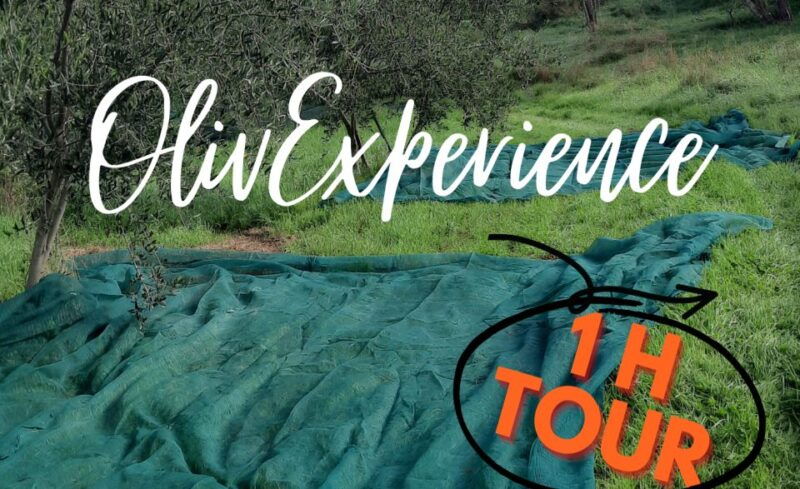
After olives are harvested, the focus shifts to the extraction process, which is key to producing high-quality extra virgin olive oil.
First, the olives are washed and crushed into a paste, releasing their oil. Then, the paste is mixed and spun in a centrifuge to separate the oil from the water and solids. This method preserves the oil’s natural flavors and nutrients.
Some producers still use traditional stone mills for a more artisanal touch. Finally, the oil is stored in cool, dark containers to maintain its quality, ensuring that every drop captures the essence of the olives.
Understanding Extra Virgin Olive Oil
Extra virgin olive oil, often celebrated for its rich flavor and health benefits, stands as a pinnacle of culinary excellence. It’s produced through careful methods that preserve the oil’s natural properties. Understanding its quality involves recognizing key factors that contribute to its superior status.
| Factor | Importance |
|——————–|——————————–|
| Acidity Level | Lower acidity indicates quality |
| Extraction Method | Cold-pressed preserves flavor |
| Source of Olives | Variety impacts taste |
| Harvest Timing | Ripe olives yield better oil |
This oil not only enhances dishes but also offers antioxidants, making it a favorite among health-conscious cooks.
More Great Tours NearbyThe Role of Terroir in Olive Oil Quality
Terroir plays a crucial role in defining the quality of olive oil, as it encompasses the unique environmental factors that influence the growth of olive trees. This includes the soil composition, climate, and topography, all of which contribute to the distinct flavors and aromas of the oil.
-
Soil type affects nutrient availability.
-
Local climate impacts olive ripeness.
-
Altitude influences oil extraction efficiency.
These elements combined create a vibrant tapestry that defines each region’s olive oil, making it a reflection of its land.
Understanding terroir helps consumers appreciate the nuances in their olive oil choices.
- Walking in the Olive Grove: How Is Extra Virgin Olive Oil Made?
- Pienza: Typical Gourmet Lunch at Ancient Tuscan Farmhouse
- Montepulciano and Pienza: the Best of Tuscany!
- Tuscany From Rome- Pienza and Montepulciano Private Day Tour
- Pienza: Sheep and Chickens Tour W/Gourmet Lunch at Farmhouse
- Communal Dinner in an Ancient Tuscan Farmhouse
Health Benefits of Extra Virgin Olive Oil
The unique qualities of olive oil, shaped by its terroir, not only enhance its flavor but also contribute to a range of health benefits. Rich in antioxidants and healthy fats, extra virgin olive oil supports heart health, reduces inflammation, and may even lower the risk of chronic diseases. Its natural compounds help maintain a healthy weight and improve brain function.
| Benefit | Description |
|—————————–|——————————————|
| Heart Health | Lowers bad cholesterol and blood pressure |
| Inflammation Reduction | Contains anti-inflammatory properties |
| Antioxidant Power | Fights free radicals |
| Weight Management | Supports metabolism |
Tasting and Pairing Olive Oil
How can one truly appreciate the nuances of olive oil? Tasting and pairing olive oil can elevate any dish, revealing its complex flavors.
Here are a few tips to enhance the experience:
-
Explore different varieties: Each type of olive oil has unique notes, from fruity to peppery.
-
Pair wisely: Use robust oils with hearty dishes and delicate oils with lighter fare.
-
Savor the aroma: Swirl the oil in a tasting glass to release its fragrance before tasting.
Visiting an Olive Grove: What to Expect
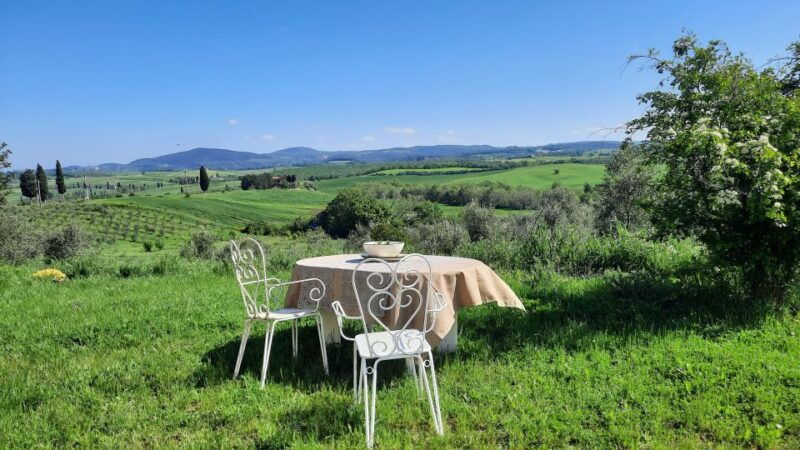
Visiting an olive grove offers a unique opportunity to experience the beauty and intricacies of olive oil production firsthand. Guests stroll among 3,500 olive trees, learning about cultivation, collection methods, and oil production. With hands-on demonstrations and educational posters, the experience is both fun and enlightening. A delightful tasting session awaits, featuring bruschetta drizzled with olive oil.
| Feature | Details | Recommendations |
|———————|———————————-|—————————-|
| Duration | 1 hour | Comfortable shoes needed |
| Price | From £25.24 | High heels not allowed |
| Accessibility | Not suitable for mobility issues | Enjoy local wine during tasting |
| Customer Rating | 4.9/5 based on 10 reviews | Inspiring hosts and stories |
Frequently Asked Questions
What Is the Best Time of Year to Visit an Olive Grove?
Autumn’s the best time to visit an olive grove. Visitors can witness the harvest, enjoy vibrant foliage, and savor fresh olive oil tastings. It’s an engaging experience, rich in flavor and seasonal beauty.
Are There Any Age Restrictions for Participating in Olive Oil Tours?
There’s no specific age restriction for olive oil tours, but participants should be aware of mobility requirements. Families often enjoy the experience together, making it a delightful outing for all ages, especially with comfortable shoes.
Can I Purchase Olive Oil Directly From the Grove?
Yes, visitors can purchase olive oil directly from the grove. They’ll enjoy a unique opportunity to taste and buy high-quality local products, enhancing their experience while supporting the artisans who craft it.
How Long Does the Olive Oil Tasting Session Last?
The olive oil tasting session typically lasts around 30 minutes. Participants savor bruschetta drizzled with olive oil while enjoying scenic views, making it a delightful conclusion to their immersive experience among the olive trees.
Are There Any Restroom Facilities Available During the Tour?
During the tour, restroom facilities aren’t available. Participants should plan accordingly. However, the engaging experience among olive trees and the delightful tasting session more than make up for this minor inconvenience, offering lasting memories.
The Sum Up
Walking through an olive grove is more than just a stroll; it’s a journey into the heart of olive oil production. From hand-picking ripe olives to the careful extraction process, every step reflects tradition and passion. Understanding the nuances of extra virgin olive oil, its health benefits, and the artistry behind its creation enhances appreciation for this liquid gold. So, whether you’re tasting or pairing, remember that every drop tells a story rooted in nature and culture.
You can check availability for your dates here:More Food & Drink Experiences in Pienza
More Tours in Pienza
- Val d’Orcia: Mill and Pasta Factory Tour with Tasting Lunch
- Pienza: tour of the mill with oil and wine tasting
- Pienza: Val d’Orcia Vespa Tour with Guide
- Pienza: Private Walking Tour With Tuscan Tasting Experience
- Pienza: Private Walking Tour in the Heart of Tuscany
- Pienza: Dairy Farm Tour With Pecorino Cheese Tasting
More Tour Reviews in Pienza
- Val d’Orcia: Mill and Pasta Factory Tour with Tasting Lunch
- Pienza: guided tasting of Orcia DOC wine and organic EVO oil
- Pienza: tour of the mill with oil and wine tasting
- Pienza: Pool Day with Typical Gourmet Lunch at Farmhouse
- Pienza: Val d’Orcia Vespa Tour with Guide
- Pienza: Private Walking Tour With Tuscan Tasting Experience
